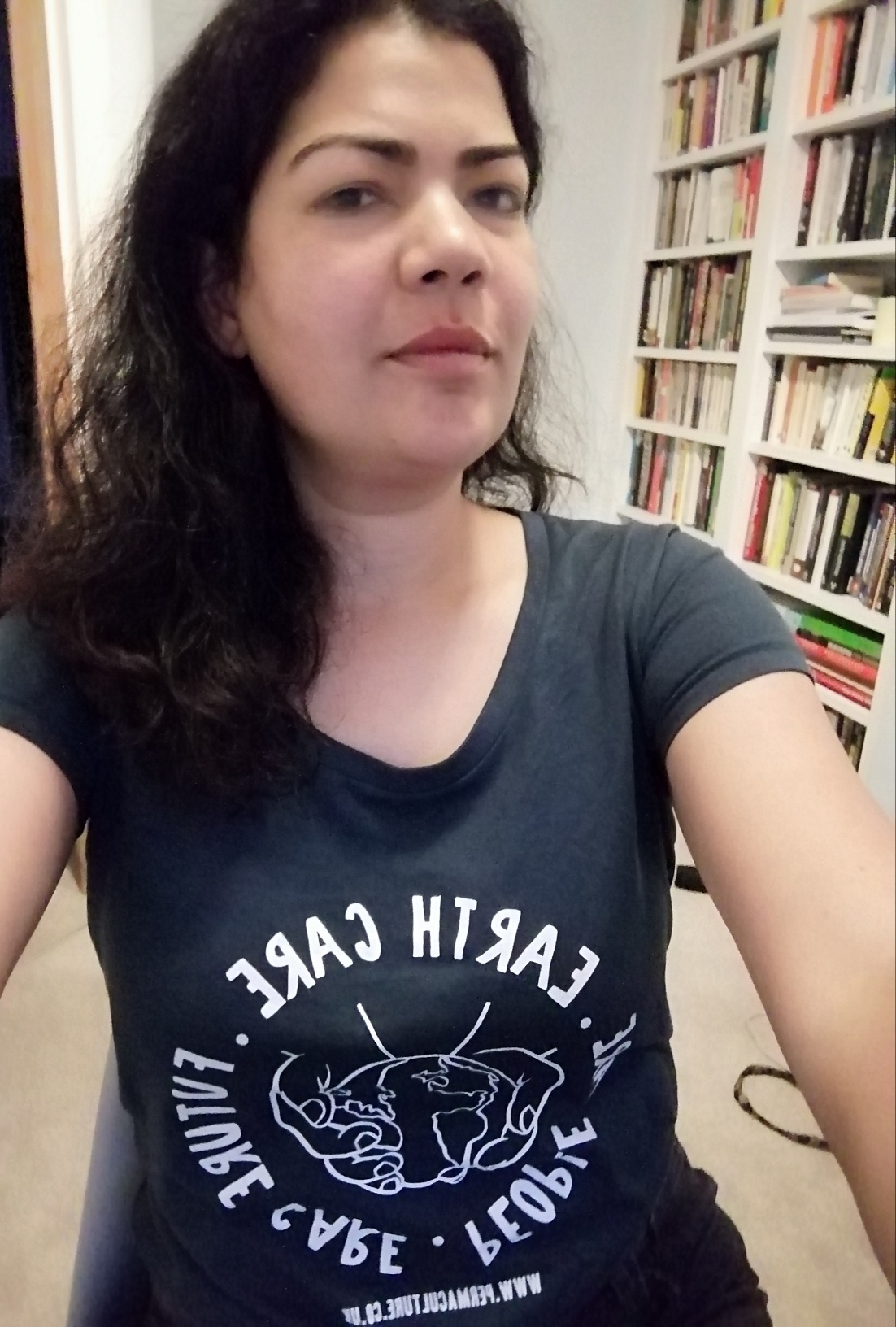8 things I learned about Permaculture at the London Permaculture festival
Permaculture is a design system for sustainable living, in case you are wondering. Since I have an allotment garden, I have been more interested in how to care for my plants using permaculture principles, something I want to learn more about and find fascinating.
I bought a Teeshirt at the London Permaculture Festival that says “Earth Care. People Care. Future Care”. As the stall manager sold it to me, he said, the teeshirt could be returned for remanufacturing in the circular economy when worn out. I later googled the company and found Ranapui, they don’t just print cool sounding slogans; they are a sustainable fashion brand. If you want organic cotton clothes and are in the UK, look them up.
I also indulged my inner plantaholic at the ‘Edulis Plant Nursery’ stall and spent all the £20 cash I had. Know the feeling? If I had more, I would have spent more. It’s hard to resist edible perennial plants — especially Berber Moroccan mint which smells divine and takes me back to sweet memories in Morocco.
Thanking Mark Ridsill Smith of Vertical Veg for his excellent video on growing pea shoots was another highlight. He was so easy and lovely to talk to, generously answering more questions and engaging in conversation.
This was my first time attending this festival and I learnt many things listed below in no particular order:
1. A teaspoon of healthy soil has more creatures in it than there are humans on earth.
2. Humans have cultivated forest gardens for thousands of years. Kerala has 3.5 million ‘home gardens. One plot of 0.3 acres was found to be growing 23 young coconut palms, 23 cloves, 56 bananas, 49 pineapples with 30 pepper vines trained up to its trees and fodder for cows.
3. Plants with hairy leaves catch pollution like lavender and rosemary.
4. Buy grapes with seeds and eat the seeds too. Ask for grapes with seeds at your local greengrocer so they know you want it, if not available. Chewing seeds is not mentally pleasant however the little bit of bitterness in that seed gets our immune system fired up. Bitter helps our immune system, our body has receptors all over and not just in the mouth so even if you don’t cheat on chewing the bitter, the body benefits.
5. Vine leaves from grapes make an excellent pastry case with a lemony tang to it.
6. Herbs have concentrated phytonutrients (a substance found in certain plants which are believed to be beneficial to human health and help prevent various diseases.). Eat the stem of the coriander, not just the leaves (I knew this one but maybe its because I am a frugally minded Indian).
7. More on herbs: Nettle shot drink: Take 3 leaves of stinging nettles from the plant top in half a glass of water, blend in a Vita-mix or NutriBullet and drink. Also, a rosemary shot is great too.
8. Okra gel is soothing to teething babies. Give them okra to chew. Our gut microbes also love this gel so eat a little bit of raw okra occasionally too.
Points 1 and 2 were from another brilliant workshop by Susannah Hall, a permaculture and forest garden designer, who also helps organize Permablitz London. If you can get to go to her workshops, they are absolutely brilliant.
Points 3 to 8 were tips from Alex Laird, writer of a book called ‘Root to Stem’commissioned by Penguin Books, which I bought and can’t wait to read. Alex is a medicinal herbalist and works with the NHS and teaches people about healing foods, her talk was extremely interesting and interactive. She had a table full of herbs at her workshop; she also had us chewing thyme and discovering with our taste buds its antiseptic qualities.
I now have 4 varieties of mint and know how to take cuttings. If you are a Londoner and need a mint cutting or perennial plant cuttings, write to me:)


